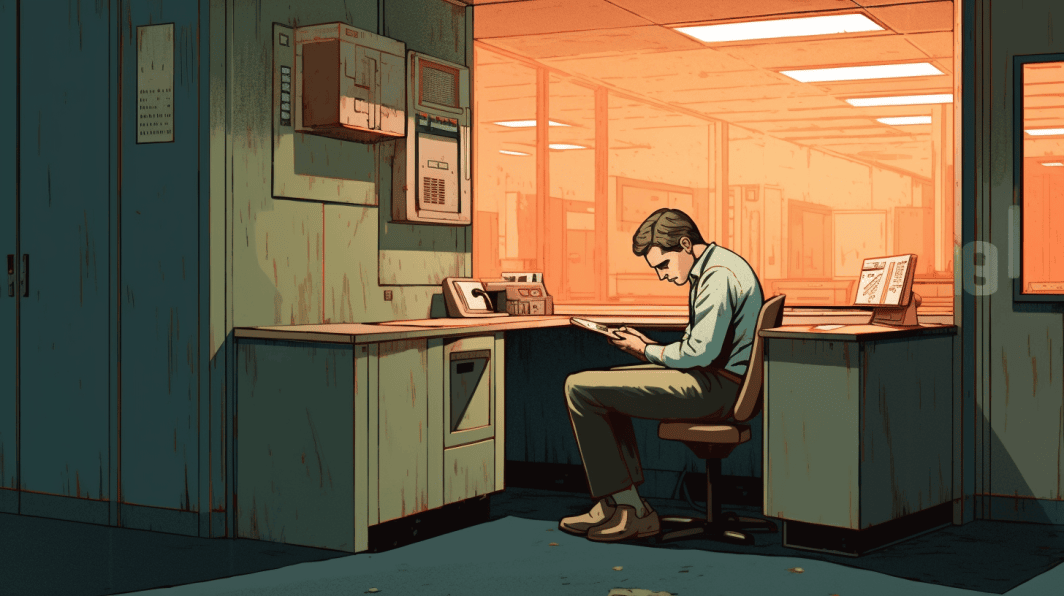
I Hate My Job: 5 Reasons Why You Might Hate Your Job
Do you feel trapped in a job you hate, counting the minutes until the day ends? You're far from alone. Shockingly, 85% of people worldwide despise their current position. But don't worry - there are solutions.
It's time to take charge of your career and find the happiness you deserve. Whether you're feeling stuck in a toxic environment, burnt out, or needing a change, this article is here to guide you. We'll explore why people hate their jobs, provide advice for each situation, and offer actionable steps to help you take the leap towards your dream career.
It's time to stop settling for the mediocre and strive for a fulfilling profession.
Why do I hate my job?
Feeling overwhelmed and frustrated is understandable if you're in a job you dislike.
Your workplace might be toxic, you could be experiencing burnout, or you may feel that you're not being properly compensated for your work. These legitimate problems can majorly affect your mental health and general well-being. Let's discuss some potential solutions so that you can start taking action to improve your situation.
1. Toxic Work Environment
Finding yourself in a toxic work environment can negatively affect your mental health and job satisfaction. The stress and anxiety caused by a hostile workplace can lead to feelings of depression. However, it's important to know that there are ways to improve the situation.
Here are a few things you can do if you're struggling with a toxic work environment:
- Talk to HR or a trusted colleague about the issues you're facing.
- Seek outside support, such as therapy or counselling, to help manage the psychological effects of hating your job.
- Consider finding a new job that aligns better with your values and provides a healthier work environment.
- Remember, it's okay to prioritise your well-being and make changes for the betterment of yourself and your career.
2. Burnout
If you're consistently plagued by feelings of exhaustion, overwhelm, and a lack of fulfilment in your work, it's highly likely that you're grappling with burnout. Burnout is a state of extreme exhaustion, both mentally and physically, caused by prolonged stress.
It can lead to feelings of detachment from work and colleagues, decreased productivity, and even physical health problems. The psychological effects of hating your job can harm your overall well-being.
Burnout can cause anxiety, depression, and other mental health issues. It's essential to recognise the signs of burnout early on and take steps to address it before it becomes too overwhelming. This may include taking time off work or seeking support from a therapist or counsellor.
Remember that your mental health should always come first, and resources are available to help you manage burnout and find fulfilment in your career.
3. Salary
Earning a fair salary is essential for career satisfaction and financial stability. Feeling undervalued or underpaid in your job can be frustrating, especially if you put in long hours and hard work. If you're experiencing this, it's important to act before the psychological effects of hating your job start taking a toll on your mental health.
Firstly, evaluate whether your salary aligns with industry standards for your experience and education. You can research online or ask colleagues in similar roles about their pay. If you discover that you're being paid below-market rate, consider having a conversation with your boss about a raise or bonus. Be prepared to provide evidence of why you deserve an increase in pay, such as exceeding performance targets or taking on additional responsibilities.
Remember that advocating for yourself and asking for what you deserve is okay.
4. Signs you might hate your job
Are you feeling unhappy and irritated at work? It's important to recognize the signs that you might hate your job to take steps towards a more fulfilling career.
Some common indicators include a lack of motivation, constant negativity, and physical or emotional exhaustion. Don't ignore these warning signals - it's time to explore options for positive change.
5. Unhappiness
Feeling unhappy at work can be challenging and draining, but there are steps you can take to improve your situation and find greater job satisfaction.
Here are some things you can do if you're feeling unhappy at work:
- Recharge and refocus by taking regular breaks throughout the day.
- Talk to someone you trust for support.
- Consider seeking professional help if your unhappiness is affecting your mental health.
6. Irritation
Do you find yourself easily annoyed by small things at work and can't shake off the constant agitation? It may be tempting to ignore these emotions and push through the day, but it's important to understand that prolonged irritation can significantly impact your life.
Feeling irritated at work is a common symptom of hating your job, and it can also lead to anxiety and stress in your personal life.
You must take steps to improve your situation before these negative emotions impact other areas of your life. By reflecting on what specifically is causing this irritation, whether it be a difficult coworker or an unrealistic workload, you can start creating a plan to address those issues head-on.
Remember that happiness at work is not just a luxury; it's essential for your overall well-being.
Steps you should take if you hate your job
Having open and productive conversations with your boss can help clarify any misunderstandings or issues contributing to your dissatisfaction.
Improving communication and giving effective feedback to your boss can be crucial in addressing issues that make you hate your job. It's important to approach this conversation calmly and professionally, as emotions can run high when discussing workplace dissatisfaction.
Here are four tips for giving effective feedback:
- Be specific: Instead of general complaints about the job or your boss, focus on specific behaviours or actions causing issues.
- Use "I" statements: This takes responsibility for your feelings and avoids blaming others. For example, say, "I feel frustrated when deadlines are not communicated clearly ", instead of "You never give clear deadlines."
- Offer solutions: Come prepared with potential solutions or suggestions for improvement.
- Follow up: After the discussion, follow up with an email outlining what was discussed and any agreed-upon action items.
- Remember, it's okay to speak up about your concerns and work towards finding solutions that benefit yourself and your employer.
While improving communication and giving feedback can alleviate workplace stress, remember, it may not solve all the issues causing you to hate your job.
When is it time for a career change?
If you've tried all the above but still feel like you're constantly hitting a dead end or you've recognised that your job no longer aligns with your personal values, it may be time to consider a career change.
Deciding to change careers can be daunting, but it also presents an opportunity for growth and fulfilment. Take the time to reflect on what truly makes you happy and fulfilled in your work.
Consider seeking resources such as career counsellors or networking events to explore different industries and roles that align with your interests and values. Remember that making a career change is not giving up - it's taking control of your happiness and pursuing a path that brings you true satisfaction.
Related articles:
- Good Reasons For Leaving a Job
- How to Explain Leaving a Negative Work Environment
- How to Write a Two-Week Notice Letter
Leave the company a review
If you've decided to remove yourself from the company, leaving them a review can provide valuable feedback for both the employer and future jobseekers. While it may seem daunting to share your negative experiences, doing so can help others make informed decisions about potential workplaces.
Additionally, sharing your thoughts with your employer allows them to address any issues and improve their practices. Here are some things to consider when leaving a review:
- Be honest but constructive in your criticism
- Provide specific examples of what made you unhappy
- Offer suggestions for improvement
- Avoid personal attacks or profanity
- Remember that your words have the power to impact both individuals and a company as a whole.
By providing thoughtful feedback, you help future jobseekers make informed decisions and allow employers to grow and improve their practices.
Leaving a review is just one way to contribute towards creating healthier work environments for all.


